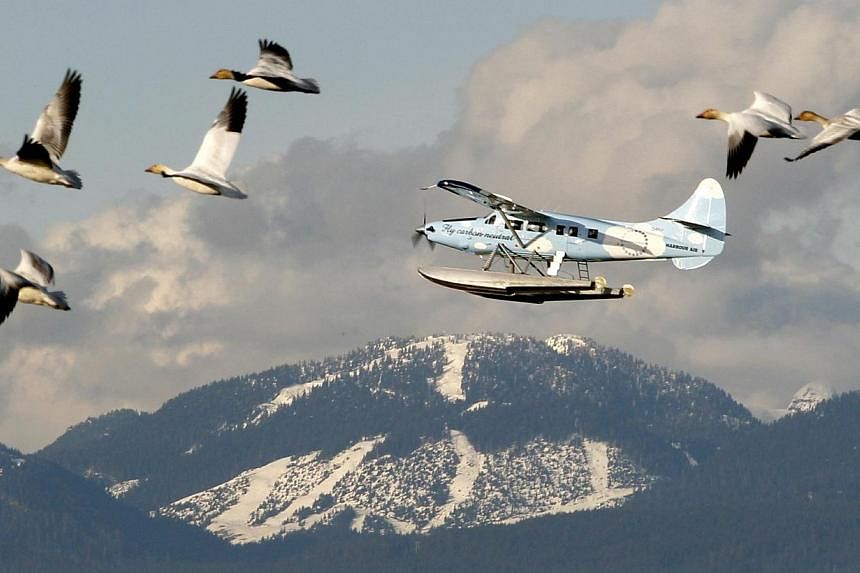PARIS (AFP) - The glaciers of western Canada, one of the world's most picturesque mountain regions, are likely to largely melt away over just three generations, scientists said on Monday.
By 2100, the glaciers of Alberta and British Columbia are set to shrink by 75 per cent in area compared to 2005 levels, and by 70 per cent in volume, according to their predictions.
But in two out of the three regions that were studied, the decline could be even more dramatic - over 90 per cent.
The loss will hit many sectors, from agriculture, forestry and tourism to ecosystems and water quality, the investigators warned.
The study, published in the journal Nature Geoscience, was headed by Garry Clarke, a professor at the University of British Columbia in Vancouver.
"The disappearance of (the) glaciers... will be a sad loss for those who are touched by the beauty of Canada's mountain landscapes," Clarke said.
"When the glaciers have gone, we lose the important services they provide: a buffer against hot, dry spells in late summer that keeps headwater streams flowing and cool, and sustains cool-water aquatic species."
The team used a computer model that combined four well-known scenarios for global warming this century, with data about three glacier-covered regions and dynamics of ice melt.
Even at the lowest projected warming, most of the glaciers are essentially doomed, according to their forecast.
"Few glaciers will remain in the Interior and Rockies regions, but maritime glaciers, in particular those in northwestern British Columbia, will survive in a diminished state," the investigators said.
The study's four warming scenarios, called Representative Concentration Pathways (RCP), are those used by the UN's Intergovernmental Panel on Climate Change (IPCC).
Under RCP 2.6, the lowest scenario, global average temperatures over this century are likely to rise by 0.3-1.7 C.
Under RCP 8.5, the highest scenario, which is based on current trends in carbon emissions, warming would be in the approximate range of 2.6-4.8 C.
For the Interior and Rockies regions, glaciers would lose more than 90 percent of their volume and area compared to 2005 levels, in all scenarios except for RCP 2.6.
The Coast region, more resistant, would see 75 per cent area loss and 70 per cent volume loss, with a margin of error of 10 percent.
The regions studied by Clarke's team cover 26,700 square kilometres - an area almost the size of Belgium and bigger than the glacial Himalayas, and with an ice volume of 2,980 cubic kilometres.
Climate scientists say they have a good overall view of how glaciers respond to global warming, but the picture at regional level is far more prone to error.
One concern is that computer models at this scale are usually based on very broad assumptions - they presume, for instance, that above a certain altitude, a glacier will be stable, whereas local topography and the physics of ice dynamics could mean it is in fact vulnerable.
The new model seeks to overcome this, using 3D simulation to a resolution of just 200 metres and taking into account factors that delay or accelerate glacier melt.
Runoff from the melting ice will peak between 2020 and 2040, the study said, pointing to another risk.
Mountain glaciers currently contribute about 0.7 millimetres in sea level rise each year, roughly equivalent to the combined runoff from the ice sheets of Greenland and Antarctica, according to the IPCC.
By 2100, the IPCC says, mountain glaciers could raise sea levels by 39 centimetres.
UN members have set a goal of limiting warming to 2 C over pre-industrial levels, and have set a conference in Paris in December as the place to seal a pact to achieve this.
The RCP scenarios do not include warming up to the start of the 20th century from the beginning of the Industrial Revolution - about 0.7 C.
"Glaciers respond to climate, not weather, and their shrinkage signals that climate change is real and its consequences are serious," said Clarke.
"It is not too late for good behaviour to be rewarded, but the longer we delay the worse things get."

